The filing deadline is April 15, 2024 – have you filed your taxes yet? If you ever receive an email or text that claims to be from the IRS, please watch out and check carefully: is it legitimate? In this article, we’ve compiled four IRS tax scams to beware of in 2024, along with some tips to stay safe this tax season. Read on to learn more.
Tax-related Identity Theft
Tax-related identity theft is a very serious problem. According to the IRS, 2.4 million tax returns were flagged for potential identity theft, and the fraudulent refunds totaled $13.8 billion as of May 2023. Besides, US consumers have already lost nearly $2.7 billion to imposter scams in 2023 alone. But how does tax-related identity theft happen?
Well, impersonating the IRS and under various pretenses, scammers try their best to trick you into revealing your personal information, such as your home address, date of birth, and Individual Tax ID Number (ITIN), with which they can file a bogus tax return on your behalf and deposit the refund into THEIR account. Be careful! Below are some examples:
Top 4 IRS Tax Scams 2024
Although it’s not an exhaustive list, when scammers reach out to you while impersonating the IRS, here’s what they may say:
- You have to confirm personal details to receive a tax refund.
- You can reduce taxes via their Offer in Compromise (OIC) program.
- You are eligible for their tax assistance program.
- You owe taxes and must complete payment to avoid penalty.
#1 – IRS Tax Refund Scams
During every tax season, there are always lots of fake IRS emails. One of the most common scam tactics is offering a fake tax refund. Scammers claim that you’re eligible for a tax refund and instruct you to apply for it using the link they provide.
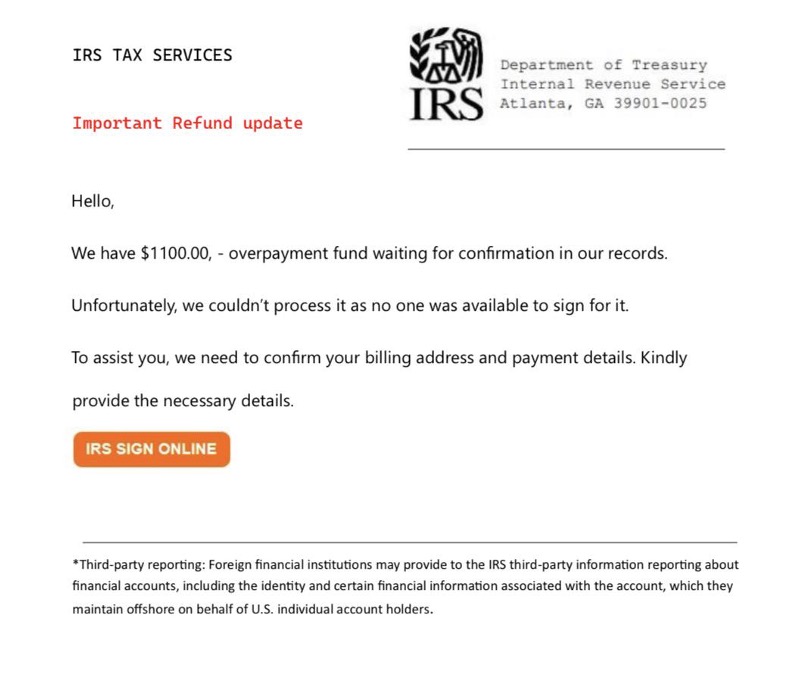
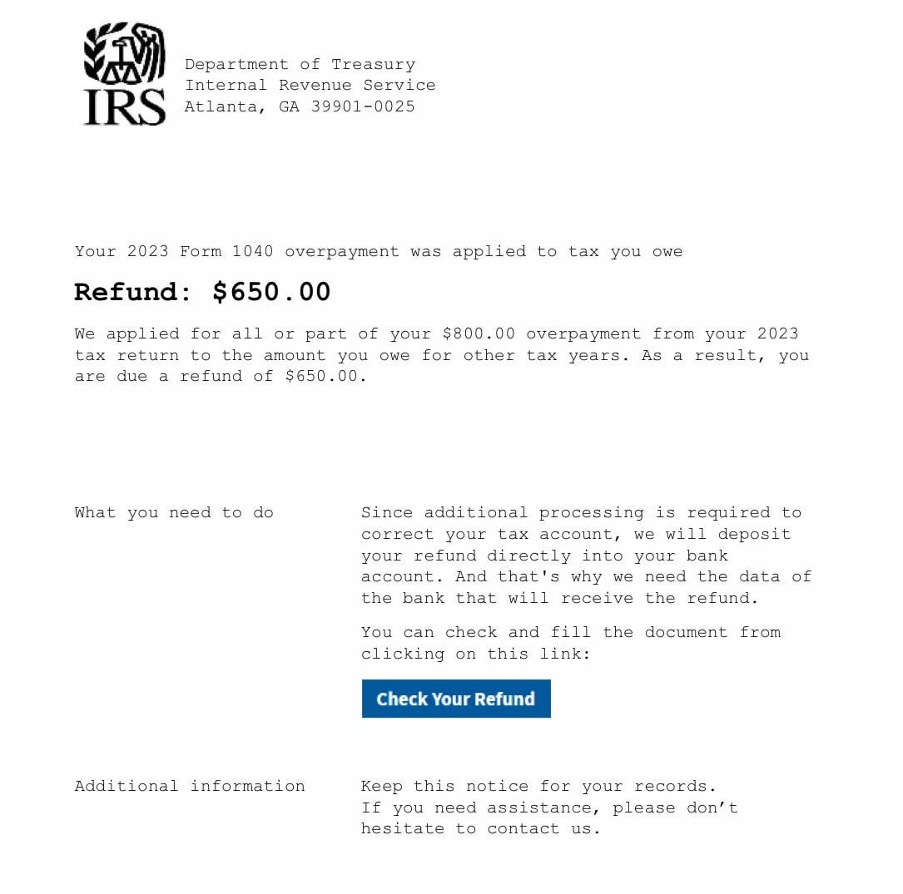
Don’t click! These links will lead you to a fake IRS website where you could reveal your personal information, including your ITIN. Once again, be careful!
#2 – IRS “Offer in Compromise” Scam
Many people turn to the IRS’s “Offer in Compromise” (OIC) program to reduce taxes. Beware! Scammers have created fake OIC programs/websites to trick people into parting with their money (by charging fees) or sharing their PII.
- Eliminate all tax debt with this secret the IRS does not want you to know about http:// noortimer[.]com.
#3 – Fake Tax Assitance Program
Scammers also make up fake tax assistance programs and trick you into joining to help reduce your taxes. However, the scammers’ goal is to prompt you to click on the embedded button and take you to other scam websites; no matter where they take you, you won’t be able to deduct a cent of your taxes. What’s worse, you could even get scammed out of extra money or PII on these scam sites. Don’t let that happen!
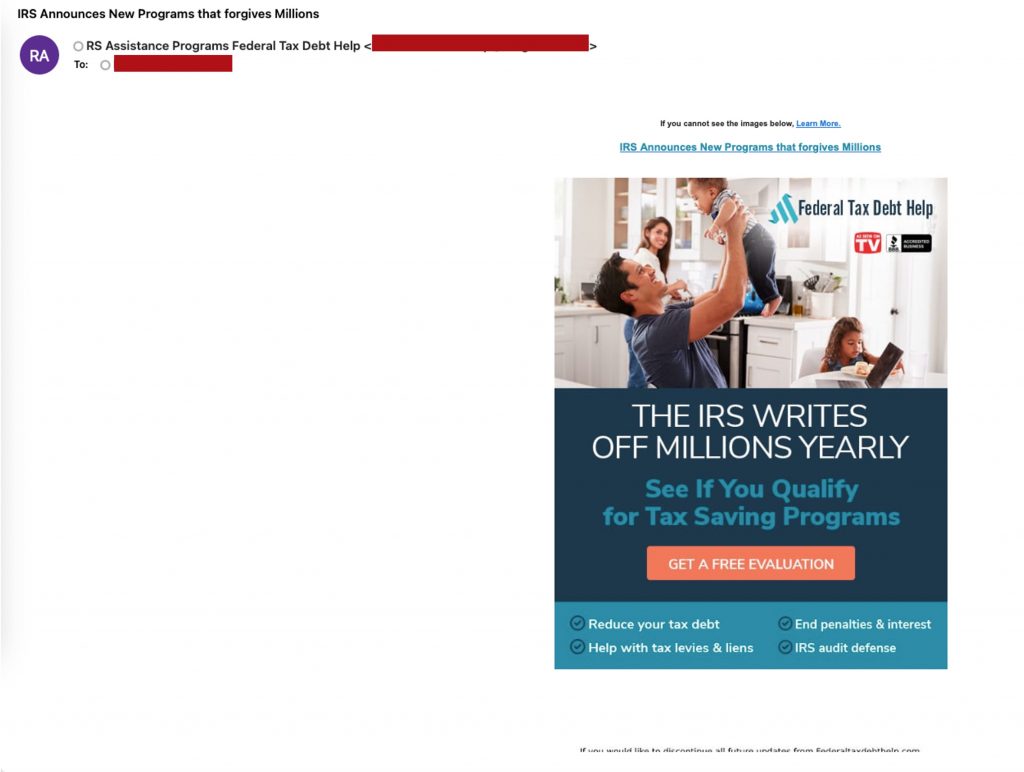
Note: the IRS won’t initiate contact with you by email, text, or social media! You can visit the IRS official website to check if you qualify for the program.
#4 – Fake 2023 Unpaid Taxes Notification
Scammers also try to convince you that you still owe them taxes for 2023. In the fake email, they attach a file for you to review, but it is malicious. Don’t click!
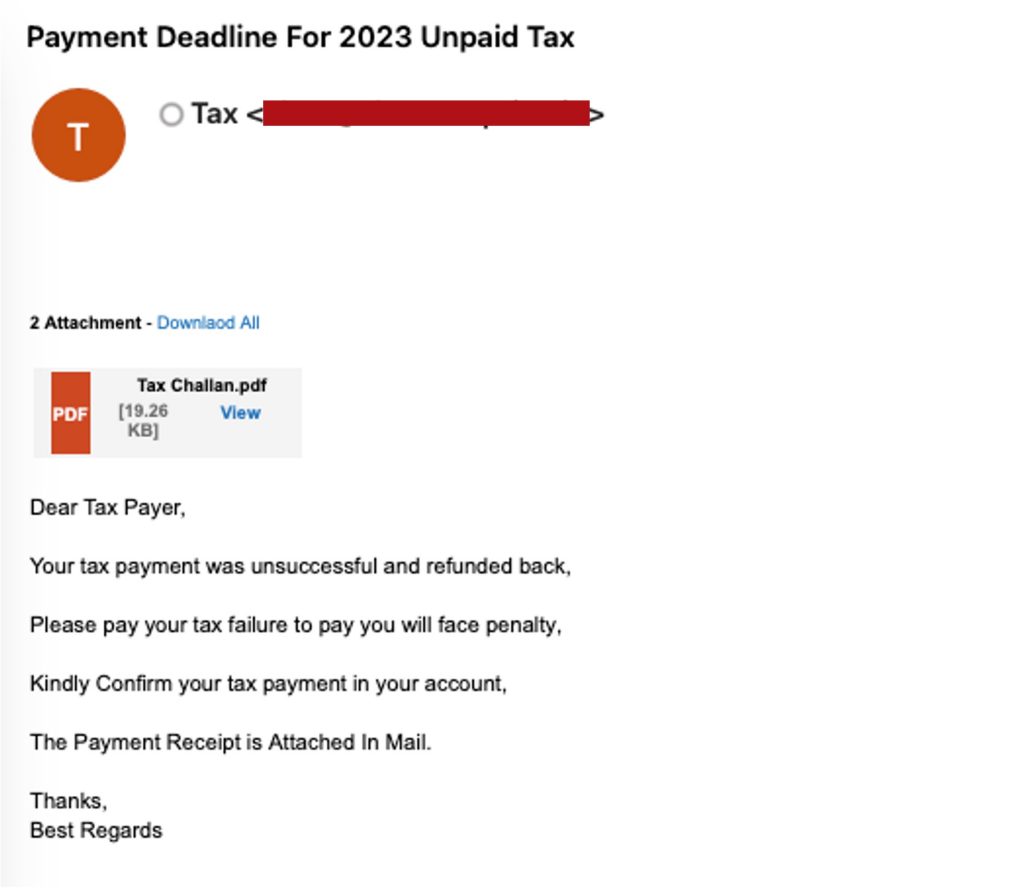
Stay one step ahead of identity theft for FREE with Trend Micro
The truth is, there are lots of scams and scam sites on the internet and they’re getting even more difficult to detect with common sense alone. However, for an easy and reliable method of detecting and avoiding scam sites, check out Trend Micro ID Protection.
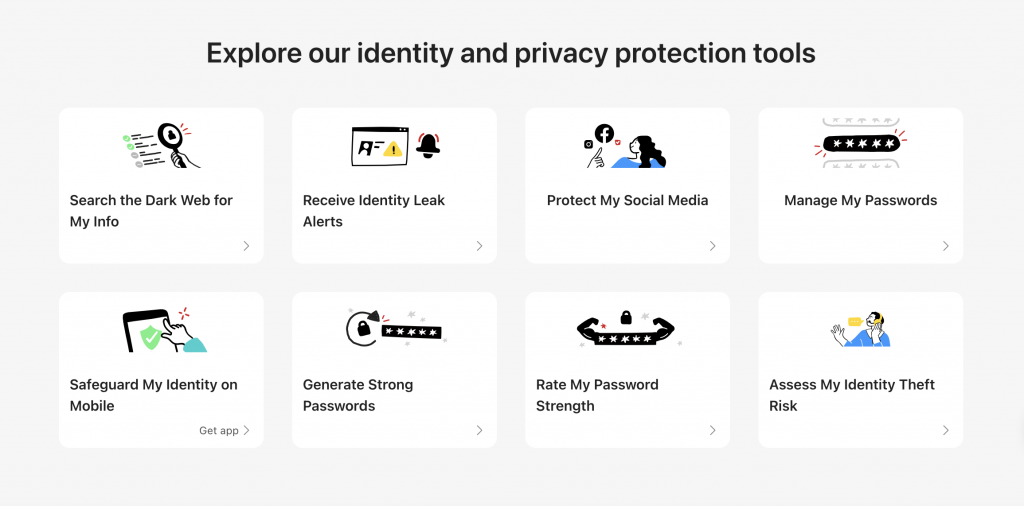
ID Protection can shield you from scams, fake and malware-infected websites, dangerous emails, phishing links, and lots more! If you come across something dangerous online, you’ll be alerted in real time so you’ll know to stay well clear.
With ID Protection, you can also:
- Check to see if your data (email, phone number, password, credit card) has been exposed in a leak, or is up for grabs on the dark web;
- Secure your social media accounts with our Social Media Account Monitoring tool, with which you’ll receive a personalized report;
- Create the strongest tough-to-hack password suggestions from our advanced AI (they’ll be safely stored in your Vault);
- Enjoy a safer browsing experience, as Trend Micro checks websites and prevents trackers.
- Receive comprehensive remediation and insurance services, with 24/7 support.
More IRS Tax Scams Safety Tips
- Double-check the sender’s mobile number/email address.
- Don’t click on links or attachments from unknown sources.
- Always contact the IRS officials directly for help.
- Protect your tax filing with an Identity Protection PIN (IP PIN).
- Don’t reveal your login credentials and other personal information to others.
- Report suspicious emails to phishing@irs.gov if you suspect a tax scam.
For more tax season safety tips, please visit this article.
Stay safe this tax season! If you’ve found this article an interesting and/or helpful read, please SHARE it with friends and family to help keep the online community secure and protected. Also, please consider leaving a comment or LIKE below.
